Filter by

Crowdsourced health :how what you do on the Internet will improve medicine
Most of us have gone online to search for information about health. What are the symptoms of a migraine? How effective is this drug? Where can I find more resources for cancer patients? Could I have an STD? Am I fat? A Pew survey reports more than 80 percent of American internet users have logged on to ask questions like these. But what if the digital traces left by our searches could show doct…
- Edition
- -
- ISBN/ISSN
- 9780262334808
- Collation
- 1 online resource (144 pages)
- Series Title
- -
- Call Number
- -
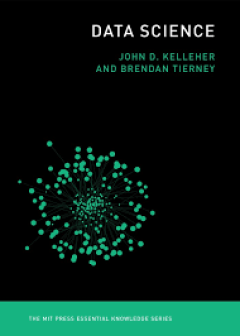
Data science
A concise introduction to the emerging field of data science, explaining its evolution, relation to machine learning, current uses, data infrastructure issues, and ethical challenges.OCLC-licensed vendor bibliographic record.
- Edition
- -
- ISBN/ISSN
- 9780262347020
- Collation
- 1 online resource (xi, 264 pages) :illustrations.
- Series Title
- -
- Call Number
- -
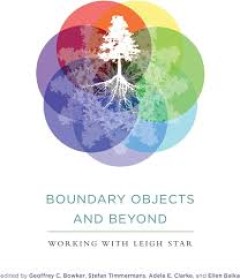
Boundary Objects and Beyond: Working with Leigh Star
Susan Leigh Star (1954--2010) was one of the most influential science studies scholars of the last several decades. In her work, Star highlighted the messy practices of discovering science, asking hard questions about the marginalizing as well as the liberating powers of science and technology. In the landmark work Sorting Things Out, Star and Geoffrey Bowker revealed the social and ethical his…
- Edition
- -
- ISBN/ISSN
- 9780262331012
- Collation
- 1 online resource (1 PDF (ix, 548 pages)).
- Series Title
- -
- Call Number
- -
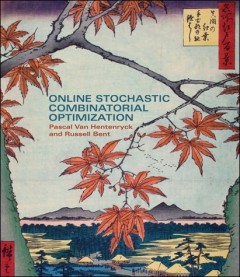
Online stochastic combinatorial optimization
"Online decision making under uncertainty and time constraints represents one of the most challenging problems for robust intelligent agents. In an increasingly dynamic, interconnected, and real-time world, intelligent systems must adapt dynamically to uncertainties, update existing plans to accommodate new requests and events, and produce high-quality decisions under severe time constraints. S…
- Edition
- -
- ISBN/ISSN
- 9780262257152
- Collation
- 1 online resource (xiii, 232 pages) :illustrations
- Series Title
- -
- Call Number
- -
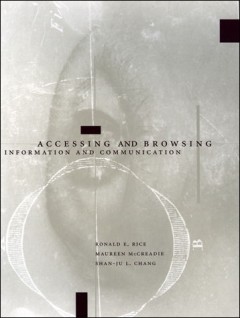
Accessing and browsing information and communication
This book contends that accessing and browsing information and communication are multidimensional and consequential aspects of the information user's entire experience and of general human behavior. Problems in information creation, processing, transmittal, and use often arise from an incomplete conceptualization of the "information seeking" process, where information seeking is viewed as the i…
- Edition
- -
- ISBN/ISSN
- 9780262256865
- Collation
- 1 online resource (xiii, 357 pages) :illustrations
- Series Title
- -
- Call Number
- -
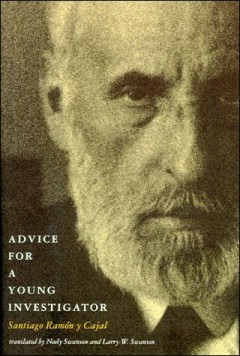
Advice for a Young Investigator.
An anecdotal guide for the perplexed new investigator as well as a refreshing resource for the old pro, covering everything from valuable personality traits for an investigator to social factors conducive to scientific work.Santiago Ramon y Cajal was a mythic figure in science. Hailed as the father of modern anatomy and neurobiology, he was largely responsible for the modern conception of the b…
- Edition
- -
- ISBN/ISSN
- 9780262282062
- Collation
- 1 online resource (165 pages)
- Series Title
- -
- Call Number
- -
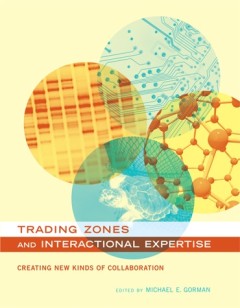
Trading Zones and Interactional Expertise: Creating New Kinds of Collaboration
Cross-disciplinary collaboration increasingly characterizes today's science and engineering research. The problems and opportunities facing society do not come neatly sorted by discipline. Difficulties arise when researchers from disciplines as different as engineering and the humanities work together and find that they speak largely different languages. This book explores a new framework for f…
- Edition
- -
- ISBN/ISSN
- 9780262289436
- Collation
- 1 online resource (viii, 302 pages) :illustrations.
- Series Title
- -
- Call Number
- -
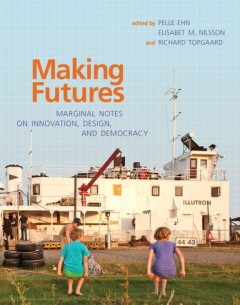
Making futures : marginal notes on innovation, design, and democracy
Experiments in innovation, design, and democracy that search not for a killer app but for a collaboratively created sustainable future.OCLC-licensed vendor bibliographic record.
- Edition
- -
- ISBN/ISSN
- 9780262320887
- Collation
- 1 online resource (xl, 351 pages) :illustrations, map
- Series Title
- -
- Call Number
- -
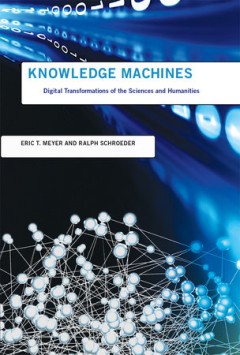
Knowledge Machines: Digital Transformations of the Sciences and Humanities
In Knowledge Machines, Eric Meyer and Ralph Schroeder argue that digital technologies have fundamentally changed research practices in the sciences, social sciences, and humanities. Meyer and Schroeder show that digital tools and data, used collectively and in distributed mode -- which they term e-research -- have transformed not just the consumption of knowledge but also the production of know…
- Edition
- -
- ISBN/ISSN
- 9780262328180
- Collation
- 1 online resource (x, 271 pages) :illustrations.
- Series Title
- -
- Call Number
- -

Going big :a scientist's guide to large projects and collaborations
"This book addresses the need for scientists to understand the framework and approach in large science projects, both from the technical project management side as well as the sociology and governance of large science collaborations"--OCLC-licensed vendor bibliographic record.
- Edition
- -
- ISBN/ISSN
- 9780262378482
- Collation
- 1 online resource
- Series Title
- -
- Call Number
- -
 Computer Science, Information & General Works
Computer Science, Information & General Works  Philosophy & Psychology
Philosophy & Psychology  Religion
Religion  Social Sciences
Social Sciences  Language
Language  Pure Science
Pure Science  Applied Sciences
Applied Sciences  Art & Recreation
Art & Recreation  Literature
Literature  History & Geography
History & Geography